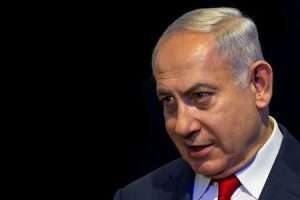Israel’s insistence on holding the Philadelphi Corridor complicates ceasefire talks and sparks regional tensions.

Israeli Prime Minister Benjamin Netanyahu has maintained a firm stance on retaining control over the Philadelphi Corridor, a key border zone between Gaza and Egypt, as ceasefire talks with Hamas remain at an impasse. Netanyahu’s refusal to withdraw from Gaza, despite it being a central demand from Hamas, has drawn criticism from multiple corners, with many suggesting that the move is more about prolonging the conflict than addressing security concerns.
Experts believe Netanyahu’s strategy hinges on delaying a ceasefire to maintain his political standing. Zachary Lockman, a Middle East specialist at New York University, argues that Netanyahu is searching for “any pretext” to avoid agreeing to a hostage exchange or ceasefire. Critics from within Netanyahu’s own government, including Defense Minister Yoav Gallant, have also voiced concerns, describing the prioritization of controlling the Philadelphi Corridor as a “moral disgrace,” especially as it jeopardizes the lives of Israeli hostages.
The Philadelphi Corridor, a narrow 14-kilometer strip along Gaza’s southern border with Egypt, has become a flashpoint in negotiations. Israeli military leaders, including Chief of the General Staff Herzi Halevi, have warned of the heightened risks to soldiers stationed there, as maintaining control would expose them to unnecessary danger.
Analysts suggest Netanyahu is prolonging the conflict to manage his domestic political challenges. Public sentiment in Israel has shifted since Hamas’s October 7 attack, which resulted in over 1,100 Israeli deaths and the abduction of around 240 hostages, 90 of whom remain captive. While Netanyahu initially faced significant criticism, recent polls show his popularity rebounding slightly, though he still trails opposition leader Benny Gantz.
The complex ceasefire negotiations also involve Egypt, which has played a crucial mediating role. Egypt opposes Israeli military presence in the Philadelphi Corridor, citing its 1979 peace treaty with Israel. Despite these objections, Netanyahu continues to insist on controlling the corridor, claiming it is essential to preventing arms smuggling by Hamas.
Egypt’s government, while remaining vocally critical of Israeli actions in Gaza, has so far avoided escalating tensions, due in part to its longstanding peace agreement with Israel, which has ensured vital U.S. military and economic aid. Still, Egypt has joined South Africa in supporting an international legal case against Israel over alleged war crimes in Gaza, demonstrating growing frustration with Israeli policies.
Netanyahu’s insistence on holding the Philadelphi Corridor has also drawn condemnation from Hamas, which views Israeli control of the border as a dealbreaker in any potential ceasefire agreement. Despite mounting pressure from regional actors and international critics, Netanyahu’s government has shown little sign of backing down from its demands, leaving the prospects for a ceasefire uncertain as the war in Gaza continues.
With time running out to submit a draft budget for 2025 and internal tensions rising, Netanyahu must navigate a delicate balance between military strategy and political survival. Yet his approach to the Philadelphi Corridor may hold the key to whether a ceasefire can be reached—or if the war in Gaza will continue to escalate.
(Associated Medias) – All rights reserved
